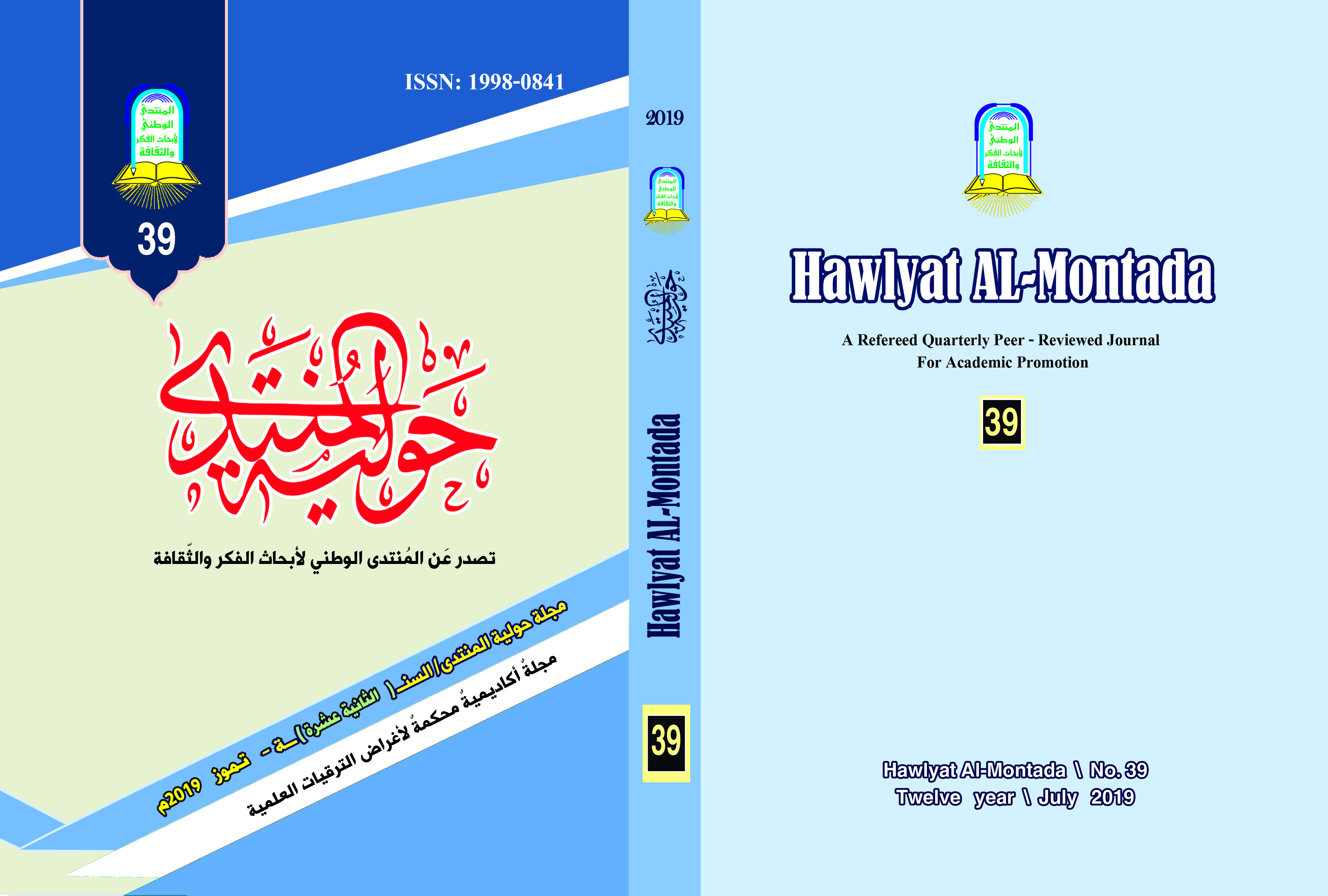Abstract
Extremism is the current world problem, which is no longer limited in scope. It has spread from East to West. It is the crisis which threatens the civil peace and social security of all nations and countries.
Despite of the international studies and concern of extremism, its causes and treatment, the door is still open to new approaches: the phenomenon of somebody blowing himself up among crowds of safe people, or somebody with Western features standing proudly to cut off the heads of prisoner soldiers with is something which requires deeper and more profound approaches with a variety of perspectives, not limited to general visions of cultural treatments, but must be rooted in the study of the religious and intellectual backgrounds, prejudices and the pre-conceived ideas which have formed the extremist mentality.
The exploitation of the religious texts and their interpretation in accordance with deviant visions of extremist groups have been the basic resources upon which these groups attempt to market their projects and recruit people of limited levels of education to implement their plans. Hence, it is necessary to study these visions and its intellectual bases to disclose their faults and deviations.
This study attempts to study the root causes of radicalism in the interpretive readings of Quran and Sunna texts in order to clarify their origins and problems; it is an attempt to systematically dry the sources of intellectual extremism and to establish academic approaches to read texts taking into consideration the environment, time, place, development and application of text.
Despite of the international studies and concern of extremism, its causes and treatment, the door is still open to new approaches: the phenomenon of somebody blowing himself up among crowds of safe people, or somebody with Western features standing proudly to cut off the heads of prisoner soldiers with is something which requires deeper and more profound approaches with a variety of perspectives, not limited to general visions of cultural treatments, but must be rooted in the study of the religious and intellectual backgrounds, prejudices and the pre-conceived ideas which have formed the extremist mentality.
The exploitation of the religious texts and their interpretation in accordance with deviant visions of extremist groups have been the basic resources upon which these groups attempt to market their projects and recruit people of limited levels of education to implement their plans. Hence, it is necessary to study these visions and its intellectual bases to disclose their faults and deviations.
This study attempts to study the root causes of radicalism in the interpretive readings of Quran and Sunna texts in order to clarify their origins and problems; it is an attempt to systematically dry the sources of intellectual extremism and to establish academic approaches to read texts taking into consideration the environment, time, place, development and application of text.
Abstract
التطرُّف هو مشكلة العالَم الحالية والتي لم تُعد محدودةً بمكان, فقد امتدَّت من أقصى الشرق إلى أقصى الغرب, وهي تُهدد السِّلْم الأهلي والأمن المُجتمعي لسائر الدول والشعوب.
ورغم كلَّ الاهتمام العالمي بدراسة التطرُّف, أسبابه وعلاجه, فلا زال الباب مفتوحاً لمُقارباتٍ جديدة؛ وذلك لأنَّ ظاهرة أنْ يُفجِّر إنسان نفسه وسط حشود الناس الآمنين, أو أنْ يقف آخر بملامح غربية ليقطع رؤوس الجنود الأسرى بكلِّ جلادةٍ واغترار... إنَّ هذا يدعو إلى أنْ تكون المُقاربات أكثر عُمقاً وبوجهات نظرٍ متعددة, لا تقتصر على الرؤى العامة في المُعالجات الثقافية, بل لابدَّ أنْ تتجذَّر بدراسة الخلفيات والمنطلقات الفكرية والخلفيات الدينيَّة والأفكار المُسبقة المكوِّنة للشخصيات المتطرِّفة.
وكان استغلال النصوص الدينيَّة وتفسيرها بما يوافق الرؤى المُنحرفة للجماعات المُتطرِّفة من الموارد الأساسية التي تعتمد عليها هذهِ الجماعات لتسويق مشاريعها وتجنيد ذوي المستويات الدُّنيا من الثقافة لتنفيذ خططها, لذا كان من الضروري دراسة هذهِ الرؤى والوقوف عند أُسسها الفكرية وبيان أوجه الخطأ والانحراف فيها.
وهذا البحث محاولة لدراسة جذور التطرُّف الضاربة في القراءات التفسيرية لنصوص القرآن والسُّنَّة قراءةً تأويليةً منحرفة، لغرض بيان أصولها الأولى ومناشئ الإشكالية فيها, وفي محاولةٍ منهجية لتجفيف منابع التطرُّف الفكرية والتأسيس لمُقارباتٍ علمية لقراءة النصوص قراءةً موضوعية تأخذ بعين الاعتبار بيئة النص وزمان ومكان نزولهِ وظروف نشأتهِ وتطبيقه.
ورغم كلَّ الاهتمام العالمي بدراسة التطرُّف, أسبابه وعلاجه, فلا زال الباب مفتوحاً لمُقارباتٍ جديدة؛ وذلك لأنَّ ظاهرة أنْ يُفجِّر إنسان نفسه وسط حشود الناس الآمنين, أو أنْ يقف آخر بملامح غربية ليقطع رؤوس الجنود الأسرى بكلِّ جلادةٍ واغترار... إنَّ هذا يدعو إلى أنْ تكون المُقاربات أكثر عُمقاً وبوجهات نظرٍ متعددة, لا تقتصر على الرؤى العامة في المُعالجات الثقافية, بل لابدَّ أنْ تتجذَّر بدراسة الخلفيات والمنطلقات الفكرية والخلفيات الدينيَّة والأفكار المُسبقة المكوِّنة للشخصيات المتطرِّفة.
وكان استغلال النصوص الدينيَّة وتفسيرها بما يوافق الرؤى المُنحرفة للجماعات المُتطرِّفة من الموارد الأساسية التي تعتمد عليها هذهِ الجماعات لتسويق مشاريعها وتجنيد ذوي المستويات الدُّنيا من الثقافة لتنفيذ خططها, لذا كان من الضروري دراسة هذهِ الرؤى والوقوف عند أُسسها الفكرية وبيان أوجه الخطأ والانحراف فيها.
وهذا البحث محاولة لدراسة جذور التطرُّف الضاربة في القراءات التفسيرية لنصوص القرآن والسُّنَّة قراءةً تأويليةً منحرفة، لغرض بيان أصولها الأولى ومناشئ الإشكالية فيها, وفي محاولةٍ منهجية لتجفيف منابع التطرُّف الفكرية والتأسيس لمُقارباتٍ علمية لقراءة النصوص قراءةً موضوعية تأخذ بعين الاعتبار بيئة النص وزمان ومكان نزولهِ وظروف نشأتهِ وتطبيقه.
